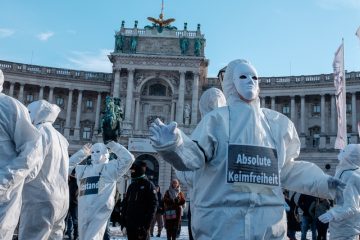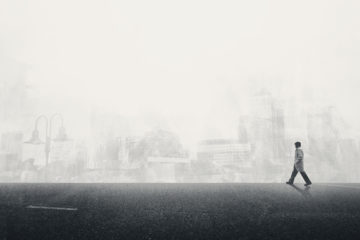
Covid-19 protests, YouTube, and the platform spectacle of populism
YouTube is a prime space for the communication of the hundreds, if not thousands, protests that have taken place around the world since mandatory measures were introduced by governments to contain the spread of the Covid-19 pandemic. From New York to Tokyo and from London to Sydney, protesting social distancing, face coverings, lockdowns and vaccines is caught up in hours of video footage by protesters themselves, passersby, and reporters, featuring as content for the YouTube channels of major international news agencies. According to a recent publication in Harvard’s Misinformation Review, such videos often serve as a backdrop for commentary out which emerge “participatory cultures of conspiracy theory knowledge production and circulation”. Here, I would like to shed light on a …
Covid-19 and Prison Populations: the case for priority vaccine allocation
As we enter 2021 and the Covid-19 pandemic rumbles on, optimism for the coming year relies heavily on successful vaccine rollout. Attention is now increasingly focussed on the practicalities of distribution, which will involve prioritisation and difficult policy decisions. Few argue about those groups right at the top of the list like care home residents, or healthcare staff working in high risk settings. However, an important population is less on the radar: people in prison. There are around 11 million people in prison around the world. Most will be in environments that make social distancing and other measures to reduce transmission, now a routine part of day-to-day community life for most, much more challenging. Such conditions can make prisons vulnerable …
The Health-Security Nexus: Reassessing Priorities after Covid-19
While Covid-19 has spurred debate about the need to elevate public health as a security concern, the securitisation of health presents both opportunities and trade-offs that need to be considered if we are to reallocate military spending to prepare for the next pandemic. The devastating toll of the Coronavirus pandemic has ignited a debate about the intersection of public health and national security. Once recognised as global leaders in pandemic preparedness, the United States and the United Kingdom have struggled to integrate policy responses to Covid-19 into existing security frameworks and to allocate resources accordingly. Indeed, public health spending in both countries pales in comparison to spending on counter-terrorism, even though more American lives have been lost to the pandemic than in all US wars since World War II and the number of Covid-19 deaths in the UK far exceed those attributed to terrorism in the last 50 years. Consequently, some academics and policymakers have questioned whether the prevailing notion of national security—a state’s capacity to defend its territory and …

Towards the Eruvian Age: Public Space in a Pandemic
In 2013, as two Fellows at New York University, we embarked on an “eruv tour” of Manhattan. Created through almost invisible strings attached to poles that envelope part of the city, this imaginary enclosure serves to delineate a religious space in which it is permissible to carry out the Jewish Sabbath. Today, we contemplate this almost invisible boundary running down Sixth Avenue with new appreciation of the insights it may yet bring to our current predicament as a pandemic of unprecedented proportions forces us to reinvent our common space, the boundaries which define it and the ways we can and should interact within it. The eruv was introduced in Roman Palestine around 50AD for a Jewish community where many of …









